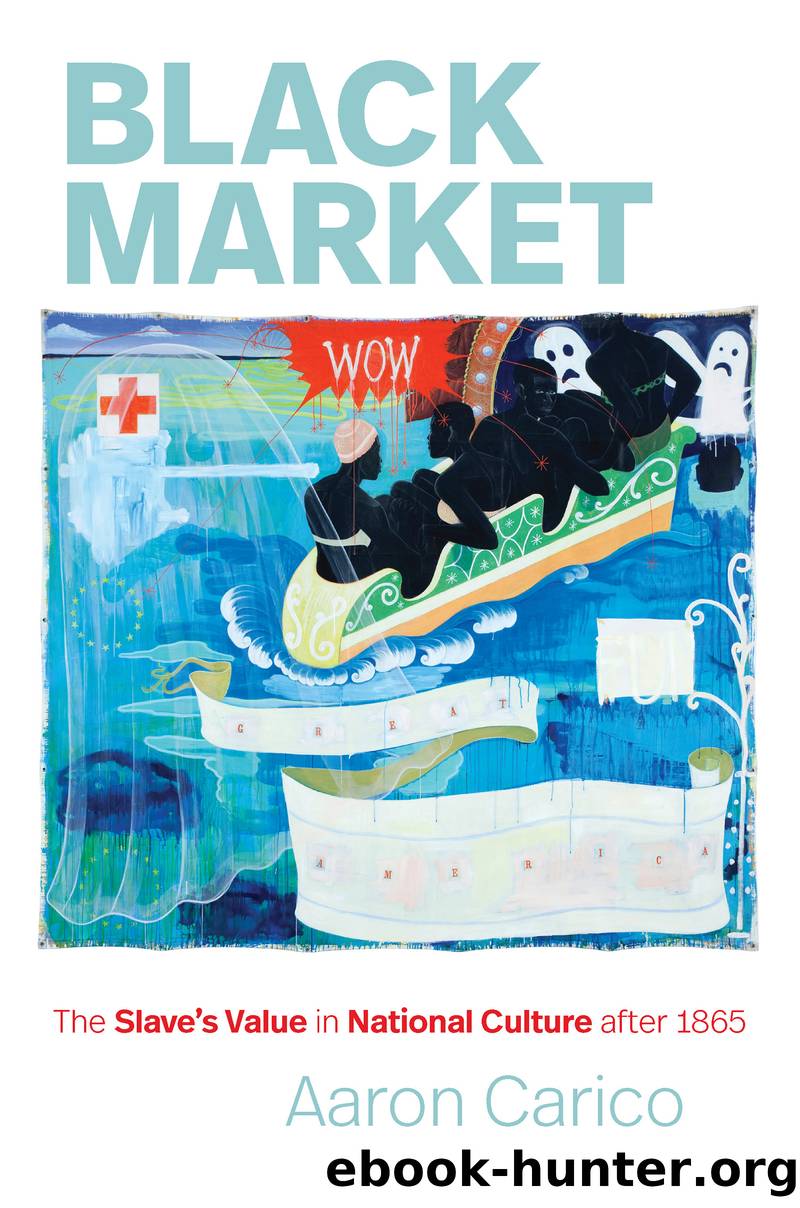Black Market by Aaron Carico

Author:Aaron Carico
Language: eng
Format: epub
Publisher: The University of North Carolina Press
* * *
THEY WERE NOT FORGOTTEN by the writers of the Southwest’s frontier stories, however. The contemporary popularity of this new genre, centered as it was on the japes and capers of poor whites, likely owes to the larger absence of this population from public discourse. The sketches must have electrified readers with the charge of discovery: Who are these people? Widely distributed, these stories helped establish a new grammar for their cultural representation. Rude, ignorant, and uncouth as they appeared, they represented an invented agrarian tradition that counterbalanced the culture of commerce and the cosmopolitanism of the market, so identified with a corrupting Northern industrialism. Poor whites were protagonists for a fairy tale whose emblem and apogee was the plantation. They occupied the starting point on an ideological course that culminated in the plantation’s ease, refinement, gentility, and wealth. They possessed the crude ore that, fired in the kiln of the Southern slave “tradition,” yielded a purer whiteness. Living anachronisms, part derelict and part relic, poor whites became symbols of the Southern plantation’s common past, the raw materials for its cloud-castles of precapitalist freedom.
As slaves were dishumanized by the plantation regime, so too, albeit less absolutely, were poor whites. These were “landless white men in a landscape being remade by black slavery and private property … [and] they were woefully out of place,” Johnson writes, as class differences among whites could be translated “into other sorts of difference: historical difference, which made poor whites seem like men from another time; racial differences, which made them seem not quite white.”72 These were also men and women who entered into all manner of intercourse with slaves—not least the obvious sexual sort, but also the commercial kind—which undermined the rigidity of status in the South. “Slaves and poor whites conducted a thriving illicit trade throughout the antebellum era,” according to historian Jeff Forret, often exchanging stolen plantation goods for liquor or clothing.73 This massive and potentially restive underclass also posed a danger to the plantation regime, if one less vivid than that of slave revolt. Consorting with slaves, breaking racial etiquette, possible co-conspirators in a feared uprising, these men were under suspicion for their loyalty by the slaveholding elite, as in Mississippi in 1835 when a feared plot involving them ended in executions of both blacks and whites. As “incomplete members of a society in which privilege was defined by slaveholding even more than by race,” they threatened the established order. These were persons who could be asked in all earnestness by the South’s aristocracy, “Were you to witness a bloody conflict between the slaves of this country and the white people, on which side would you be?”74
Download
This site does not store any files on its server. We only index and link to content provided by other sites. Please contact the content providers to delete copyright contents if any and email us, we'll remove relevant links or contents immediately.
| General | Discrimination & Racism |
Nudge - Improving Decisions about Health, Wealth, and Happiness by Thaler Sunstein(7709)
The Fire Next Time by James Baldwin(5447)
iGen by Jean M. Twenge(5416)
Adulting by Kelly Williams Brown(4574)
The Sports Rules Book by Human Kinetics(4388)
The Hacking of the American Mind by Robert H. Lustig(4383)
The Ethical Slut by Janet W. Hardy(4253)
Captivate by Vanessa Van Edwards(3840)
Mummy Knew by Lisa James(3693)
In a Sunburned Country by Bill Bryson(3543)
The Worm at the Core by Sheldon Solomon(3487)
Ants Among Elephants by Sujatha Gidla(3467)
The 48 laws of power by Robert Greene & Joost Elffers(3293)
Suicide: A Study in Sociology by Emile Durkheim(3023)
The Slow Fix: Solve Problems, Work Smarter, and Live Better In a World Addicted to Speed by Carl Honore(3010)
The Tipping Point by Malcolm Gladwell(2925)
Humans of New York by Brandon Stanton(2873)
Get What's Yours for Medicare: Maximize Your Coverage, Minimize Your Costs by Philip Moeller(2739)
Handbook of Forensic Sociology and Psychology by Stephen J. Morewitz & Mark L. Goldstein(2705)
